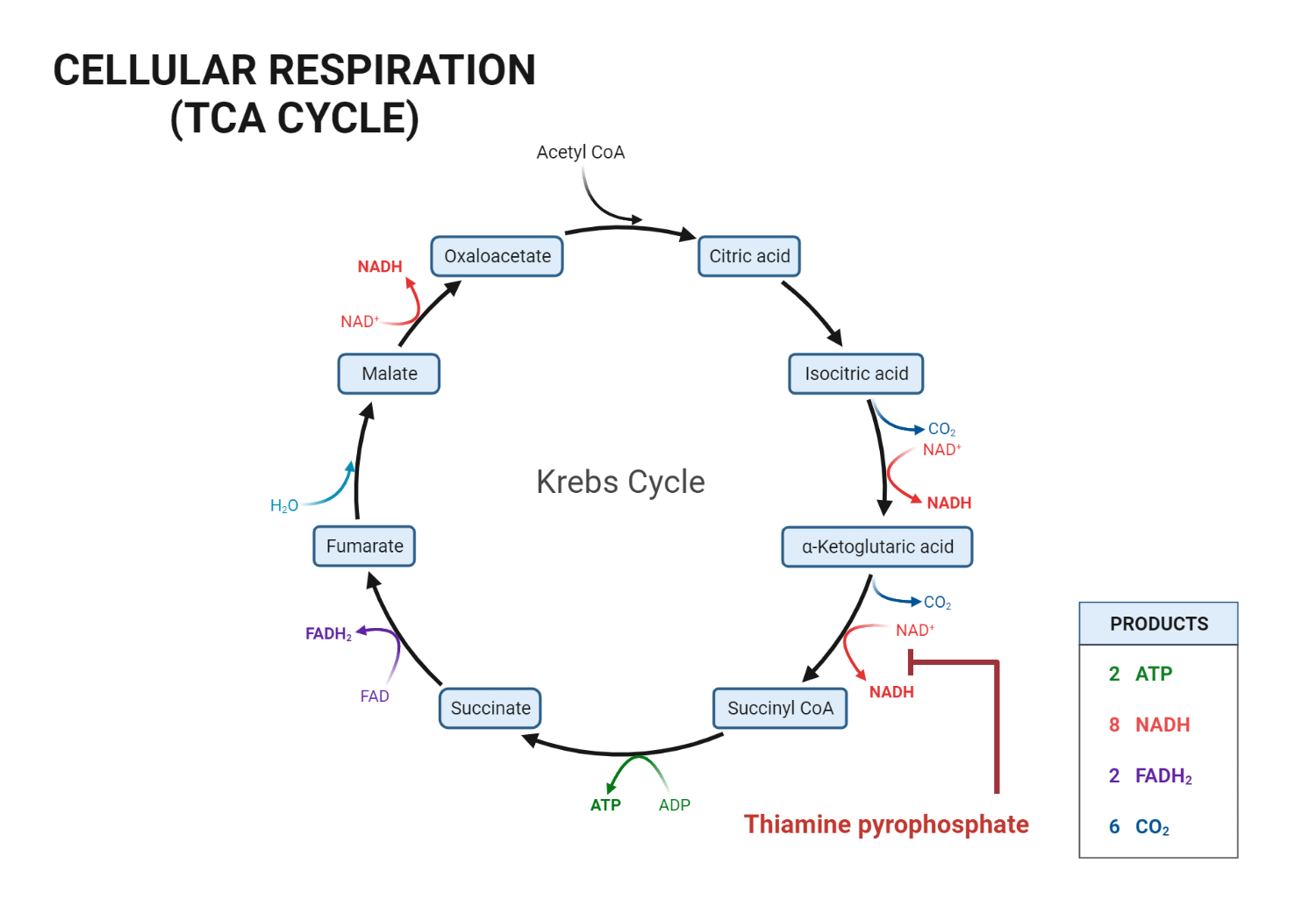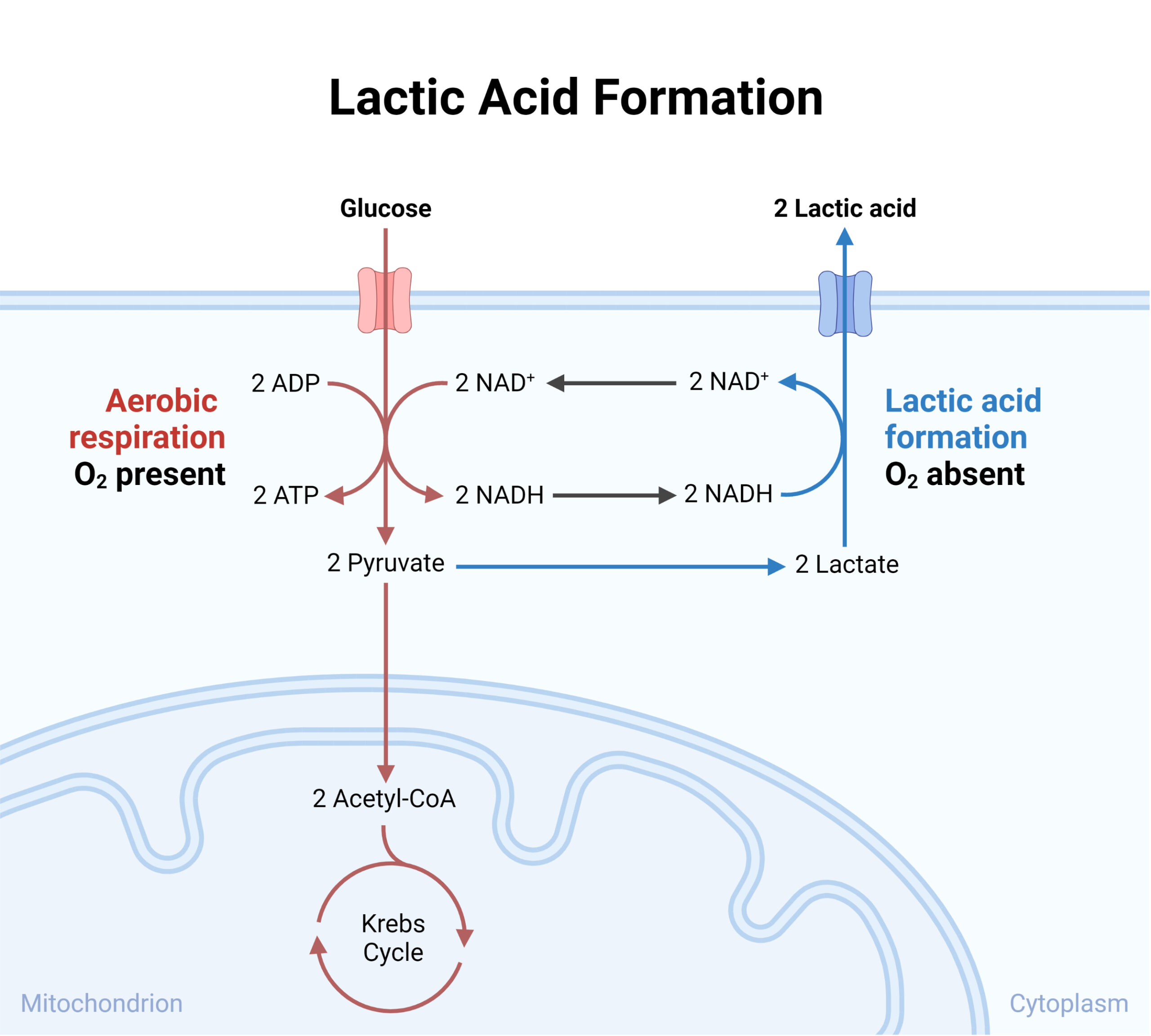Chronic alcoholics are at an elevated risk for vitamin B1 (thiamine) deficiency, which can result in Wernicke-Korsakoff Syndrome, cerebellar degeneration, and cardiovascular dysfunction. Indeed, if left untreated, thiamine deficiency can cause irreversible damage to the central nervous system (CNS). This article highlights the significance of administering intravenous (IV) thiamine to alcoholic patients before glucose-containing IV fluids and explores the underlying mechanisms that make this a crucial step in the management of these patients.
Standard Treatment for Thiamine Deficiency in Alcoholics
The standard treatment for alcoholic patients with Wernicke-Korsakoff Syndrome is the administration of 100 mg thiamine IV before glucose-containing IV fluids, followed by several days of thiamine supplementation. This approach prevents the worsening of Wernicke-Korsakoff Syndrome and the occurrence of irreversible brain damage. Oral replacement is inappropriate in the setting of acute alcohol intoxication due to several factors
CNS Damage in Thiamine-Deficient Alcoholic Patients
The type of CNS damage observed in thiamine-deficient alcoholics varies but typically involves the formation of hemorrhagic and necrotic lesions in the mammillary bodies, hypothalamus, thalamus, periaqueductal region, floor of the fourth ventricle, and cerebellar vermis. These areas of the brain may be more sensitive to thiamine availability and directly affected by the toxic effects of alcohol and its metabolites. These regions require adequate ATP and NADPH to maintain tissue integrity and function. Thiamine deficiency or stress states can exacerbate metabolic requirements, upregulating cellular reactions to compensate for the current situation. This is particularly problematic when glucose-containing fluids are administered without first increasing thiamine availability.
Role of Thiamine in Cellular Metabolism
Thiamine is crucial for the formation of thiamine pyrophosphate, an essential co-factor used by several cellular enzymes. Thiamine pyrophosphate is required for glycolysis and the tricarboxylic acid (TCA) cycle. Furthermore, three enzymes in these metabolic pathways—α-ketoglutarate dehydrogenase, branched-chain amino acid dehydrogenase, and pyruvate dehydrogenase—require thiamine pyrophosphate to function. Indeed, adequate glycolysis and TCA cycle function are essential for ATP generation to maintain cellular activity.

In thiamine deficiency, these enzymes become nonfunctional, leading to inadequate ATP generation and the accumulation of α-keto acids and lactic acid within cells. These adverse effects contribute to cellular stress. Additionally, the pentose phosphate pathway, which depends on thiamine, generates NADPH for reductive biosynthesis reactions and ribose-5-phosphate for nucleotide biosynthesis. The failure of this pathway can result in damage to intracellular structures.
The culmination of these stressors due to thiamine deficiency can activate intracellular pathways of apoptosis (programmed cell death), which may explain the areas of hemorrhage and necrosis observed in autopsies.
The Importance of Administering Thiamine before Glucose Infusion
In times of stress or nutritional deficiencies, cells may upregulate biochemical pathways. If given glucose precursors without adequate thiamine levels, cells will rapidly utilize them. However, in the absence of sufficient thiamine, glycolysis, and TCA cycle enzymes cannot function properly, leading to the accumulation of intermediate products and a halt in ATP generation. Consequently, pyruvate accumulates and is converted to lactate (lactic acid) to maintain glycolysis and generate at least 2 ATP.

The increased production of lactic acid, the inability of the pentose phosphate pathway to protect cells from reactive oxygen species that damage cellular structures, and mounting cellular stress result in cell death or apoptosis activation. By administering thiamine before glucose, the glucose can be more effectively utilized to generate ATP, preventing the acceleration of cell damage and death in brain structures.
Preventing and Managing Complications
Administering thiamine before glucose-containing IV fluids can prevent or mitigate the severity of Wernicke-Korsakoff Syndrome and cerebellar degeneration in alcoholics. The extent of the damage caused by chronic alcoholism and thiamine deficiency can manifest as varying degrees of cognitive impairment and musculoskeletal coordination issues. In severe cases, the risk of death is significant.
It is crucial to note that while the initial administration of thiamine is vital for preventing the worsening of Wernicke-Korsakoff Syndrome, it may take several months to correct the effects of thiamine deficiency. Healthcare providers should closely monitor patients during this period and adjust treatment plans as needed to optimize recovery.
Conclusion
The administration of IV thiamine before glucose-containing fluids is an essential step in managing alcoholic patients with Wernicke-Korsakoff Syndrome. By understanding the underlying mechanisms of thiamine deficiency and its effects on cellular metabolism and brain structures, physicians can better manage this patient population and prevent irreversible damage to the CNS. Early intervention and continued thiamine supplementation are critical for the prevention and treatment of complications associated with chronic alcoholism and thiamine deficiency.
References
Hoyumpa AM, Jr. Mechanisms of thiamine deficiency in chronic alcoholism. Am J Clin Nutr 1980;33:2750-2761.
Kindly Let Us Know If This Was helpful? Thank You!


